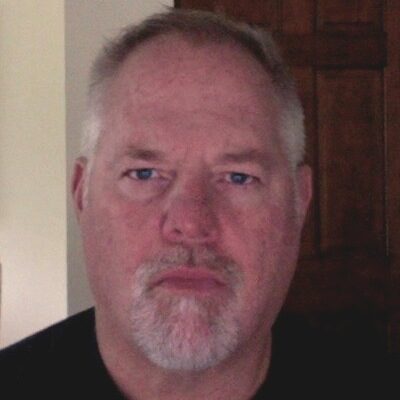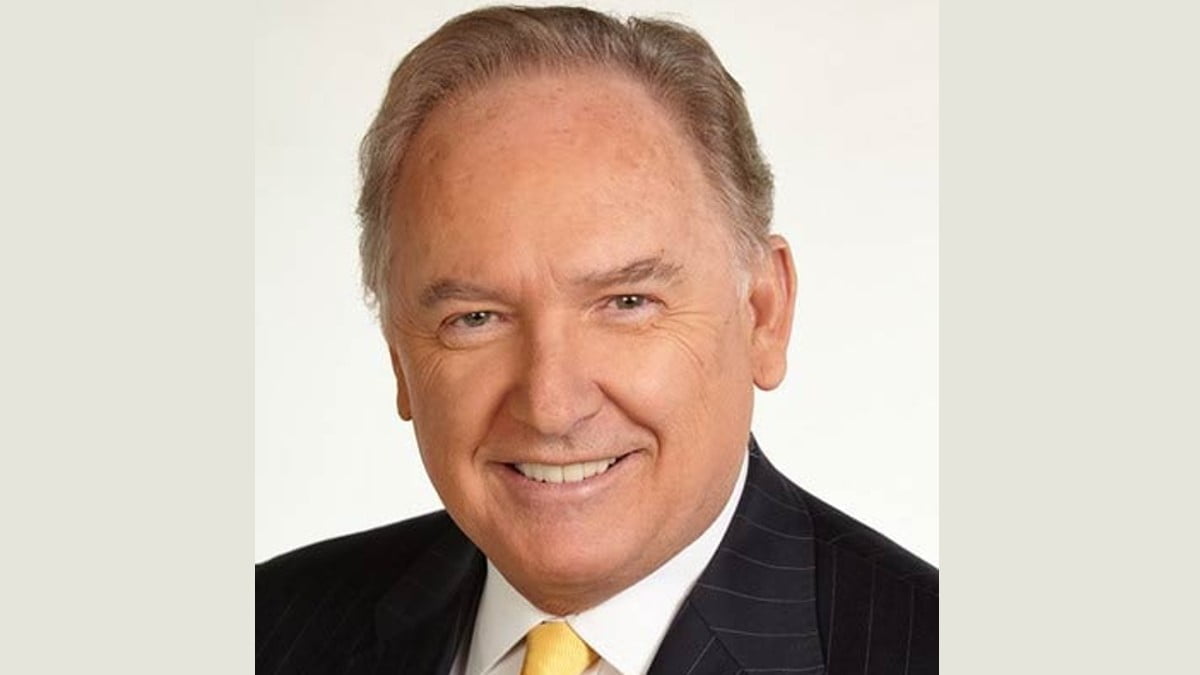I don’t know what Willy Wonka was like as a kid, but it’s a pretty good guess he knew his future would have something to do with candy. Ironically, esteemed radio talker Tom Sullivan had no intention of going into the media. Accounting was his passion, but chocolate was always a big part of his life.
“When my dad got home from work I’d hug him,” Sullivan said. “He must have thought I loved him but I was really trying to get a whiff of the chocolate. My dad was a chocolate maker in Seattle. He belonged to the bakers and confectioners union. He never allowed any candy in the house because he was so sick of it, working around chocolate all day long. He just didn’t want to see it.”
That gives special meaning to the Father’s Day Card: World’s Sweetest Father.
“When I saw people working so hard when I was a kid, I thought, ‘I’ll tell you what, I’m going to get a good education so I don’t have to punch the clock.’ The funny thing is, all you do in radio is punch the clock. We sit in a padded room for three hours talking. Now that’s crazy.”
While you may be well aware of Sullivan’s career moves, you might not know his initial chosen profession of accounting stemmed from him fancying a particular young lady.
“When I was 16, I became interested in a girl named Cindy, whose father was a CPA,” Sullivan explained. “I didn’t even know what a CPA was. But I liked Cindy and would visit her at her parent’s house. Her father asked me if I’d like to come down to his office, and he’d show me what bookkeeping was all about. He taught me basic accounting, basic bookkeeping, and I loved it. I took an optional course in business accounting when I got to college, and I couldn’t
believe how much I enjoyed it.”
That’s when Sullivan realized accounting was for him. His undergraduate degree is in accounting. He also enrolled in a bunch of advanced math classes and early computer programming. That’s when computers were the size of RVs.
The war was raging in Vietnam and Sullivan went into the Army, through ROTC. He immediately got hurt during basic training in an explosion.
“They wrapped me up and sent me back to Seattle. That was it for the Army.”
Sullivan had paid his debt to Uncle Sam.
In college, Sullivan said there was an ambulance station across from the university. It was like working at a fire station. He had overnight shifts there as a driver. Living there, he’d fix meals, work overnight and then go to school in the morning. A great way to pay for college.
“They had a business office with typewriters, copy machines. I could do my homework there.”
During his time as an ambulance driver, he met a lot of police officers. They told Sullivan the police department was hiring patrol officers, and they’d pay for graduate school in exchange for work.
It sounded good. Later, Sullivan learned it came at a price.
“I saw a lot of things by the end of graduate school,” Sullivan said. “I saw my share of drunk drivers. I also saw so much death and destruction as an ambulance driver and a highway patrolman. It was not conducive to your mental health.”
How can someone not be affected after seeing that kind of stuff? Sullivan said he has thought about the possibility of his having PTSD, but ruled it out.
“I know it’s a very real thing. I think if I’d been in battle, I would have been greatly affected. I don’t think I have PTSD. I have a personality that deals well with bad things. Even with all the gore and destruction I witnessed, I think I learned to compartmentalize those experiences.”
Sullivan said it’s a total mystery how his career has unfolded.
“I was the first in my family to go to college, so I was a trailblazer in that regard. I had no mentors. No examples. Cindy’s dad was the closest thing to a mentor.”
After graduation, Price Waterhouse came calling. They liked Sullivan so much they said he could work at an office of his choosing, anywhere.
“I’m a West Coast kid and I didn’t know diddly about the East Coast. I knew New York and San Francisco were the two financial cities. I always wanted to live in San Francisco so I moved there in 1971.”
He worked for Price Waterhouse from 1972 through 1977. While at Price Waterhouse, Sullivan acted as a tax consultant for major corporations. One of his clients was a physician who wanted to start a mortgage business. They built the business together and then sold. A lot of Sullivan’s old tax clients asked him to help with investments, and it all took off.
“CPAs were prevented from working with investments,” Sullivan said. “I opened a boutique investment firm in 1980. I thought, how do I get some advertising for this? I checked into the ad costs on the number one radio station in Sacramento. I asked them how much it cost to advertise on the station?”
This is how accounting morphed into Sullivan’s career in the radio business.
“When they told me how much it cost to advertise I thought, “Holy smokes,’ that’s a lot of money. I told them I listened to their station in the morning and I called the PD and suggested I do some financial news on the station in exchange for the advertising.”
The GM called him back and told Sullivan he couldn’t help him with that, but he knew another radio station that might. Sullivan called that station and they asked if he could come on the air and offer some tax tips listeners could utilize before the end of the year.
“When that was finished the business reporter was leaving and they asked if I’d be interested in taking his slot.”
Sullivan started doing the radio gig, and it wasn’t long before the local NBC affiliate heard him and asked if he could do the same for them.
“I did that for the NBC station, KCRA for 25 years until I left for New York.”
Sullivan started with iHeart in 1980 and has been with the company for 42 years.
He knew Rush Limbaugh from the talkers’ early days in Kansas City at KMBZ. Limbaugh did local talk from 1980-88 before moving on to New York. Limbaugh and Sullivan became very dear friends.
“He was the best man at my wedding and we were close until the day he passed.”
As Limbaugh worked in New York, he called Sullivan and said he might be able to get him a job. At this point, Limbaugh was doing two hours on WABC, and he also had a two-hour syndicated show.
“They had a one-hour hole in the schedule and asked me if I could go on and talk about money. I told them I couldn’t talk about money all the time as I’d get bored. Then we discussed topics from the newspaper as well, so I did and filled the gap in the schedule.”
After seeing Sullivan’s numbers in the one-hour slot, they gave the afternoon host the boot and put him in her slot. Now he had three hours in the afternoon on WABC. That went from 1988 through 2007.
“We sit in a padded room by ourselves and talk for three hours.”
Compared to 99.8% of accountants in the world, Sullivan is an anomaly.
Largely because he can carry a conversation and doesn’t wear a pocket protector. Well, maybe he does, but his personality is vastly different. “I gave a speech once to the American Institute of CPAs. The audience was full of accountants and if I made a joke or tried to imbue the talk with some humor, they just stared at me.”
He’s had the opportunity throughout his career to interview the biggest, the brightest, and most influential people in history.
He recalled the time he was in the green room waiting for Dr. Billy Graham. Sullivan said he was lucky to be able to chat with the man for half an hour.
“I asked him how he became a world-famous world leader. He said, ‘Tom, I’ve been given a gift by God. There are ministers that know more about the Bible than I do. I was given a gift to explain it simply’. I thought that was a good plan, explaining concepts to people in a relatable fashion”
As he sees the world today, Sullivan said it’s a mess, but not a total loss.
“I’m not a pessimist by nature,” Sullivan said. “I get a lot of callers who think we’re in doomsville. I don’t. We’re going through a tough day, in some ways. I’ve seen worse times. I lived through the 60s. I saw a president gunned down. I saw Robert Kennedy and Martin Luther King get gunned down. I saw riots and mayhem. Things aren’t so bad.”

Jim Cryns writes features for Barrett News Media. He has spent time in radio as a reporter for WTMJ, and has served as an author and former writer for the Milwaukee Brewers. To touch base or pick up a copy of his new book: Talk To Me – Profiles on News Talkers and Media Leaders From Top 50 Markets, log on to Amazon or shoot Jim an email at jimcryns3_zhd@indeedemail.com.







